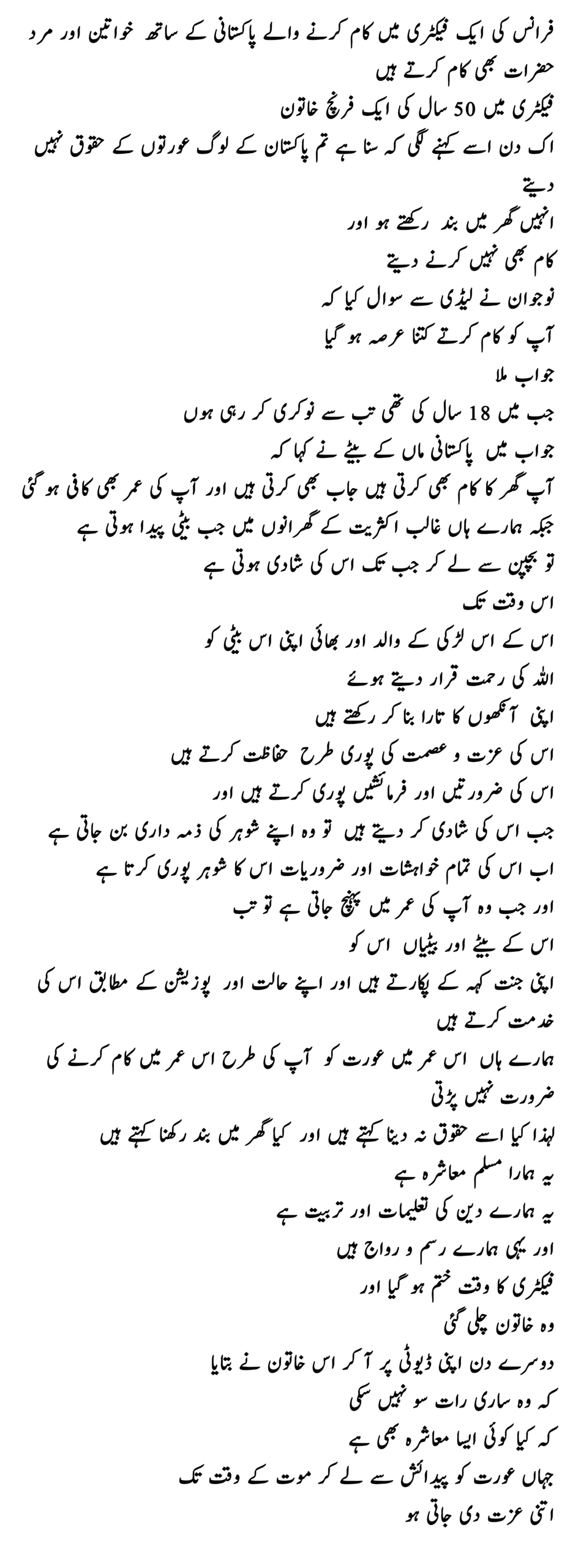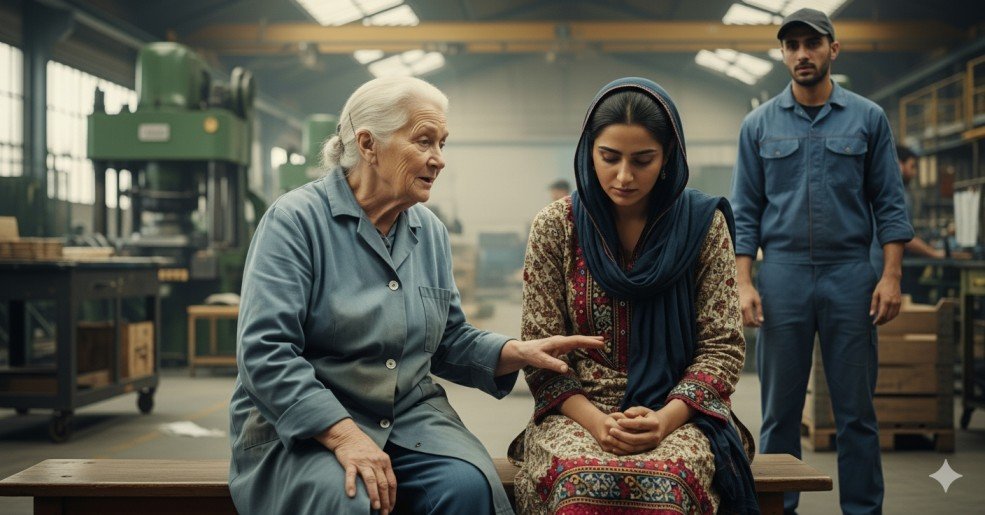In a large factory in France, many people from different backgrounds worked side by side. Among them were Pakistani men and women who worked tirelessly, day after day, to support their families back home.
One afternoon, during a break, a young Pakistani woman sat quietly beside an elderly French lady who had been working in the factory for more than fifty years. The old woman noticed the sadness on the young girl’s face. She gently asked,
“My child, why do people in your country not give women the rights they deserve? Why are they often kept inside the house and not allowed to work freely?”
The question was simple, but it carried weight. The young Pakistani woman hesitated, unsure how to explain. She lowered her gaze, and before she could answer, the old woman asked again, “Tell me honestly, how long have you been working?”
The girl softly replied, “I started working when I was 18 years old.”

The elderly French lady nodded thoughtfully. But before she could respond, a Pakistani man, who had been listening nearby, joined the conversation. He said with calm confidence:
“In our culture, when a daughter is born, the responsibility of providing for her lies with her parents. They work hard, protect her dignity, and care for her needs until she grows up. When she reaches an age suitable for marriage, she is given away with respect and love. From that day forward, her husband becomes responsible for her — for her food, clothing, shelter, and all her needs.”
He paused for a moment and then added, “If she has children, they too grow up protecting and caring for her in her old age. They serve her, honor her, and see Paradise at her feet. In our faith, this is not only culture but also a divine teaching — a responsibility laid upon us by God Himself.”
The French woman listened intently, her face softening with every word. The man continued:
“You see, madam, in our tradition, a woman is not forced to work for survival. Her role is one of dignity, respect, and honor. From the moment she is born until the time she departs this world, her well-being is the responsibility of her family and her loved ones. She is not abandoned to fend for herself. Instead, she is cherished, respected, and protected.”
The room fell silent. The elderly French woman leaned back, her eyes moist. She whispered, “I never thought of it this way… In our society, we believe freedom means working until the body gives up, but perhaps what you describe is another kind of freedom — the freedom from burden, the freedom of being cared for.”
She smiled faintly, realizing the depth of what had been said. Time for the shift ended, and she went home with those thoughts still heavy in her heart.
The Realization
The next day, when she returned to the factory, her colleagues noticed she seemed tired. At one point, she quietly admitted to them, “I could not sleep all night. I kept thinking about what that Pakistani man said. Maybe I was wrong to assume that women in his culture are deprived. Maybe, in truth, they are given a respect that our society sometimes forgets.”
She sighed deeply, “In every culture, women face challenges. But the idea of being honored and cared for from birth until death… that is something very beautiful. Perhaps the real measure of respect is not only how freely one works, but how deeply one is valued.”
The Lesson
That day, everyone in the factory learned something new. Respect is not only about giving rights — it is about fulfilling responsibilities. A woman’s worth is not defined by how much she works outside the home but by the dignity, love, and honor she receives throughout her life.
In the end, the elderly French woman’s perspective changed forever. And the Pakistani workers were reminded that their traditions, rooted in faith and compassion, carried wisdom that the world often overlooked.
From birth until her final breath, a woman deserves respect, protection, and honor. That is the true teaching of humanity, and that is what every heart must remember.







